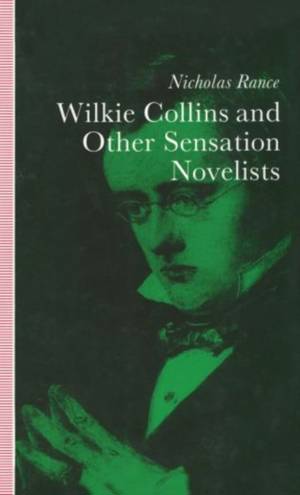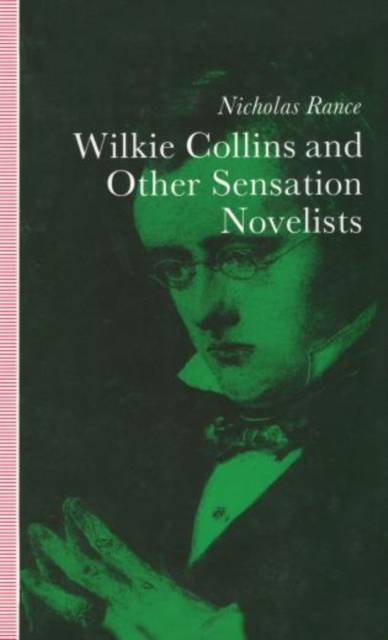
- Afhalen na 1 uur in een winkel met voorraad
- Gratis thuislevering in België vanaf € 30
- Ruim aanbod met 7 miljoen producten
- Afhalen na 1 uur in een winkel met voorraad
- Gratis thuislevering in België vanaf € 30
- Ruim aanbod met 7 miljoen producten
Zoeken
€ 92,45
+ 184 punten
Uitvoering
Omschrijving
Recent critical interest in the sensation novel, which dominated the literary market in England in the 1860s, has been primarily preoccupied with images of women and issues of gender in the fiction. These are also concerns here, but Wilkie Collins and Other Sensation Novelists adopts a fresh approach by relating the vogue in the 1860s for sensation fiction to a specific phase of a crisis of faith in the bourgeois ideology of self-help. There is a spectacular contrast between the "depth of effect and shock of incident" in the fiction, which the contemporary novelist and critics, Margaret Oliphant, thought an appropriate literary response to "an age which has turned to be one of events," and the propriety of the domestic saga, the preceding vogue in fiction, which had flourished in the late 1840s and 1850s and been displaced by the sensation novel.
The demise of sensation fiction after a mere decade, and in Collins' case, perhaps paradoxically, the impulse to have missions to which Swinburne attributed his "perdition" as a novelist, are then associated with a returned sense in the 1870s of the durability of the status quo, and the temporary revival of a moralism which had seemed in a terminal condition in the 1860s.
The demise of sensation fiction after a mere decade, and in Collins' case, perhaps paradoxically, the impulse to have missions to which Swinburne attributed his "perdition" as a novelist, are then associated with a returned sense in the 1870s of the durability of the status quo, and the temporary revival of a moralism which had seemed in a terminal condition in the 1860s.
Specificaties
Betrokkenen
- Auteur(s):
- Uitgeverij:
Inhoud
- Aantal bladzijden:
- 208
- Taal:
- Engels
- Reeks:
Eigenschappen
- Productcode (EAN):
- 9781611470994
- Verschijningsdatum:
- 1/05/1991
- Uitvoering:
- Hardcover
- Formaat:
- Genaaid
- Afmetingen:
- 148 mm x 227 mm
- Gewicht:
- 344 g

Alleen bij Standaard Boekhandel
+ 184 punten op je klantenkaart van Standaard Boekhandel
Beoordelingen
We publiceren alleen reviews die voldoen aan de voorwaarden voor reviews. Bekijk onze voorwaarden voor reviews.











